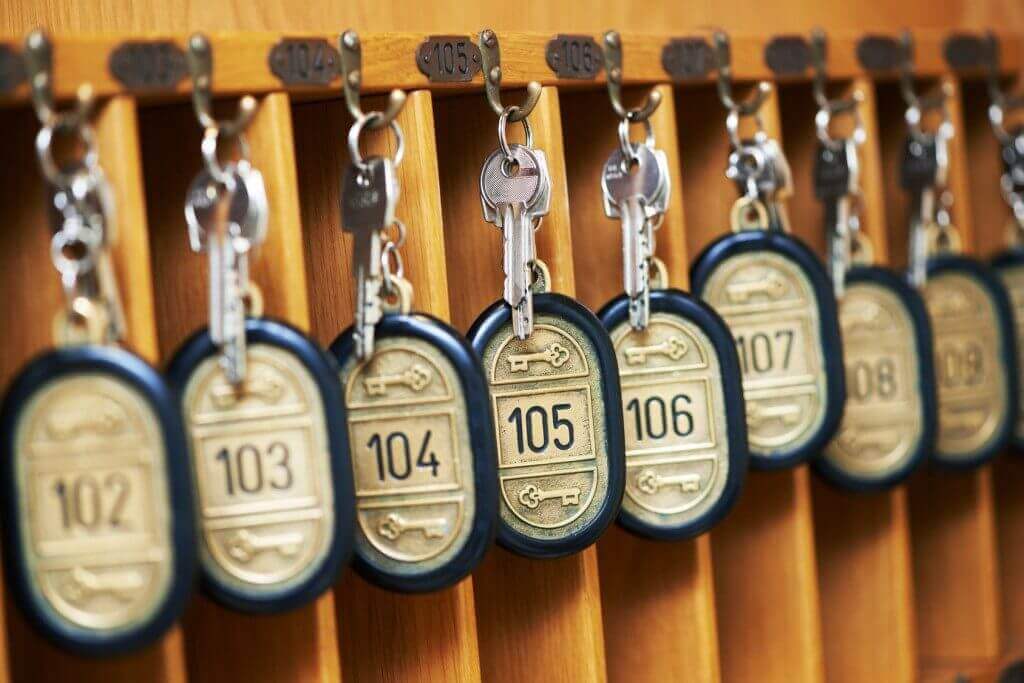
‘Best before’ dates are a really common concept, often seen on business-to-consumer products; some products have ‘best before’ dates that are 10 years after the product release date, while others (like milk, cheese and bread) have exceptionally short lifespans—sometimes as short as a week.
NB: This is an article by Mark Lewis-Brown, CEO and President of Vertical Booking USA
Strangely enough is that one highly perishable consumer product is almost never considered to have a ‘best before’ date: the hotel room. Here’s why I say that hotel rooms have a ‘best before’ date: an empty room is an expired one, after which the empty room becomes a liability, not an asset.
Think about it—like milk, a hotel room is a perishable product; unfortunately for hoteliers, hotel rooms expire daily at 11:59 p.m.–making hotel rooms’ shelf-life much shorter than the loaf of bread slowly growing blue mold on your counter.
When a room is left empty, not only does your hotel lose potential revenue (through both the room and potential incidental charges incurred during the guest’s stay), you still have to pay for the room’s upkeep. In short, when you let one of your rooms expire, you are throwing away a huge amount of money each and every night.
So, how can you get a soon-to-be-expired room booked, even at the very last minute?
To ensure long-term profitability, hotels must update their distribution strategy to fill the literal void that an empty room creates. Here are two ways to fill your property’s empty rooms and increase your overall occupancy and revenue per available room.
1. Last-Minute Booking Sites and Apps
While this tip might seem like an obvious one, many hoteliers still don’t use the last-minute booking sites and apps because they require the property to offer a significant discount on their rooms to be listed. I get it—it sucks to have to discount your room and still pay a commission, but this strategy is not a good business decision because many travelers, not just millennials, prefer to book their hotel at the last minute. If your property isn’t listed on the sites/apps these travelers use, you will not get their booking.
If you are one of the aforementioned hoteliers, listen up: Here are four stats that prove that last-minute bookings, especially those made on a mobile device, are an important and highly profitable trend for hoteliers:
- Travel-related searches for “tonight” and “today” have grown more than 150 percent on mobile over the past two years.
- 72 percent of all mobile bookings made by U.S. travelers happened within a 48-hour window before the booking.
- Forty-nine percent [of millennials] take last-minute vacations, meaning many will be booking a hotel at the last minute as well, often using their mobile devices.
- Forty-six percent [of millennials] book travel through a smartphone or tablet.
Last-minute booking sites/apps (such as HotelTonight, Hotwire, Priceline, etc.) all are designed to attract this highly profitable demographic of bookers who prefer to book at the last minute, sometimes even after landing in their destination. If your property isn’t using these sites to fill empty rooms up until the final minute of each day, you are missing out on a huge number of bookings and, of course, revenue.
Still not convinced? Think about it this way: using the last-minute sites/apps, you may only earn 30 percent to 40 percent of the regular room rate but, when you factor in that you will also, most likely, earn additional revenue from on-site purchases (i.e. food-and-beverage, on-site amenities, tours, etc.), using these channels is a better business decision than letting the room expire, earning you zero revenue from the room.
Thirty to 40 percent vs. no revenue at all. That’s really what it comes down to. Which would you choose?
Hopefully, you’re getting the idea, but just in case, here’s a quick recap: it’s absolutely worth discounting on the last-minute sites/apps to earn some income from a soon-to-be-expiring room.
Of course, we don’t recommend discounting as a long-term strategy, but in this case, discounting via these sites/apps is a great strategy because it doesn’t leave your room or your wallet empty, night after night.
2. Central-Reservation System Automation
Did you know that just more than 70 percent of the last-minute bookers search for and book their room on their mobile device? Most of the online travel agencies already have technology integrated into their booking engines that enables them to offer discounted rates to last-minute, mobile bookers, making it easy for them to capture ALL of the last-minute bookings.
As such, it’s an operational imperative—no matter what size or type of hotel you have—for you to offer potential last-minute bookers the same discounted room rate through your website, allowing your property to remain competitive, especially in the fast-paced, ever-changing hotel industry.
So, you’re probably thinking: “All right, makes sense. How do I implement this update? Will I need to hire a coder or be a tech expert?”
It’s actually very simple: just configure your CRS to offer discounted room rates for mobile, last-minute bookers through your website’s mobile booking engine—ensuring that last-minute potential guests have a way to book the same discounted rates via the direct channel.
So instead of earning 30 to 40 percent of your regular room rate (as you might on bookings originating from the last-minute booking sites/apps), when you offer the same discounted rate on your direct channel, you could be earning 50 to 60 percent of your normal room rate because you’ve eliminated the cost of acquisition.
Now, that is what I call a win/win situation.




